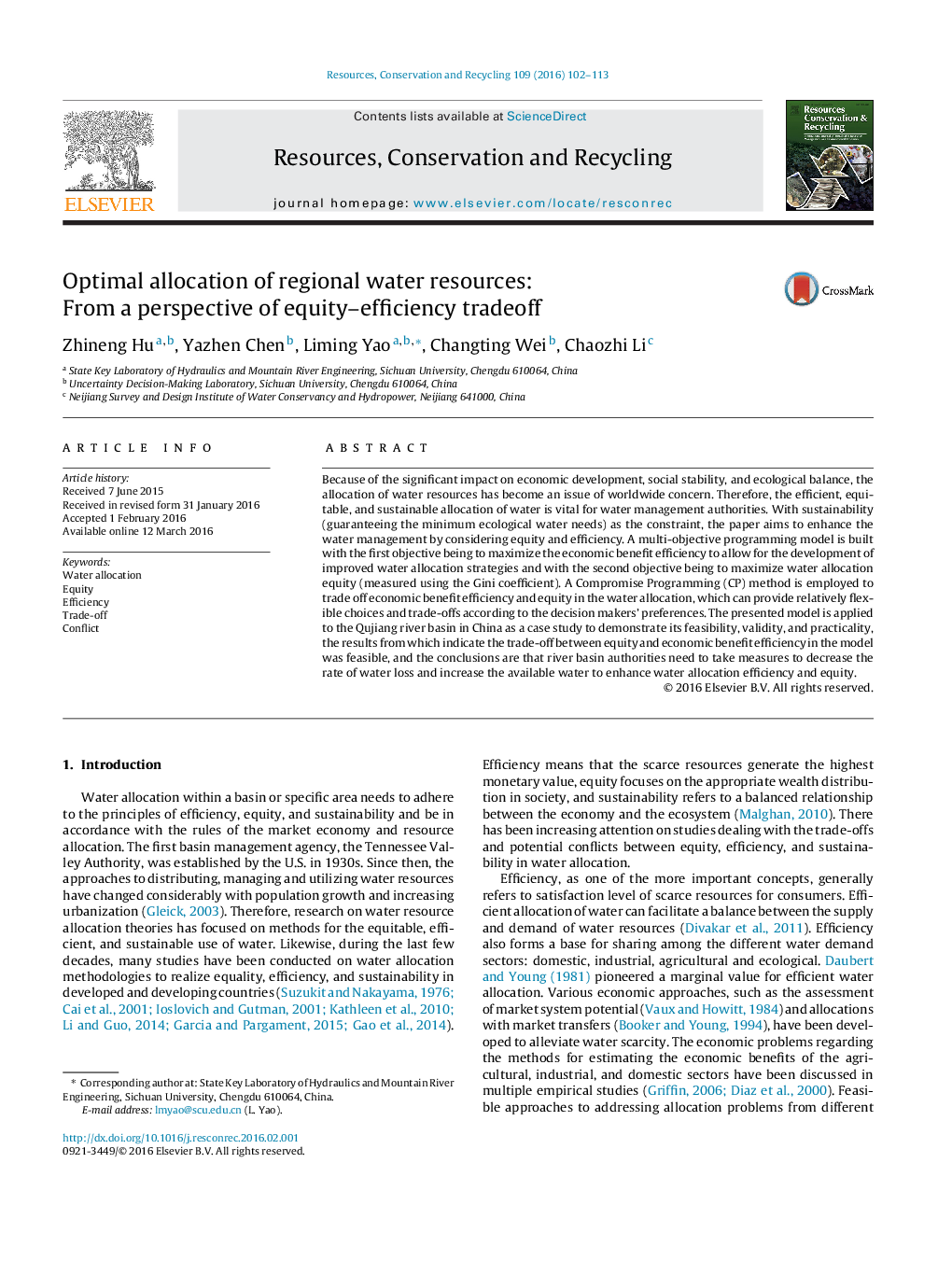| Article ID | Journal | Published Year | Pages | File Type |
|---|---|---|---|---|
| 7494908 | Resources, Conservation and Recycling | 2016 | 12 Pages |
Abstract
Because of the significant impact on economic development, social stability, and ecological balance, the allocation of water resources has become an issue of worldwide concern. Therefore, the efficient, equitable, and sustainable allocation of water is vital for water management authorities. With sustainability (guaranteeing the minimum ecological water needs) as the constraint, the paper aims to enhance the water management by considering equity and efficiency. A multi-objective programming model is built with the first objective being to maximize the economic benefit efficiency to allow for the development of improved water allocation strategies and with the second objective being to maximize water allocation equity (measured using the Gini coefficient). A Compromise Programming (CP) method is employed to trade off economic benefit efficiency and equity in the water allocation, which can provide relatively flexible choices and trade-offs according to the decision makers' preferences. The presented model is applied to the Qujiang river basin in China as a case study to demonstrate its feasibility, validity, and practicality, the results from which indicate the trade-off between equity and economic benefit efficiency in the model was feasible, and the conclusions are that river basin authorities need to take measures to decrease the rate of water loss and increase the available water to enhance water allocation efficiency and equity.
Related Topics
Physical Sciences and Engineering
Energy
Renewable Energy, Sustainability and the Environment
Authors
Zhineng Hu, Yazhen Chen, Liming Yao, Changting Wei, Chaozhi Li,
